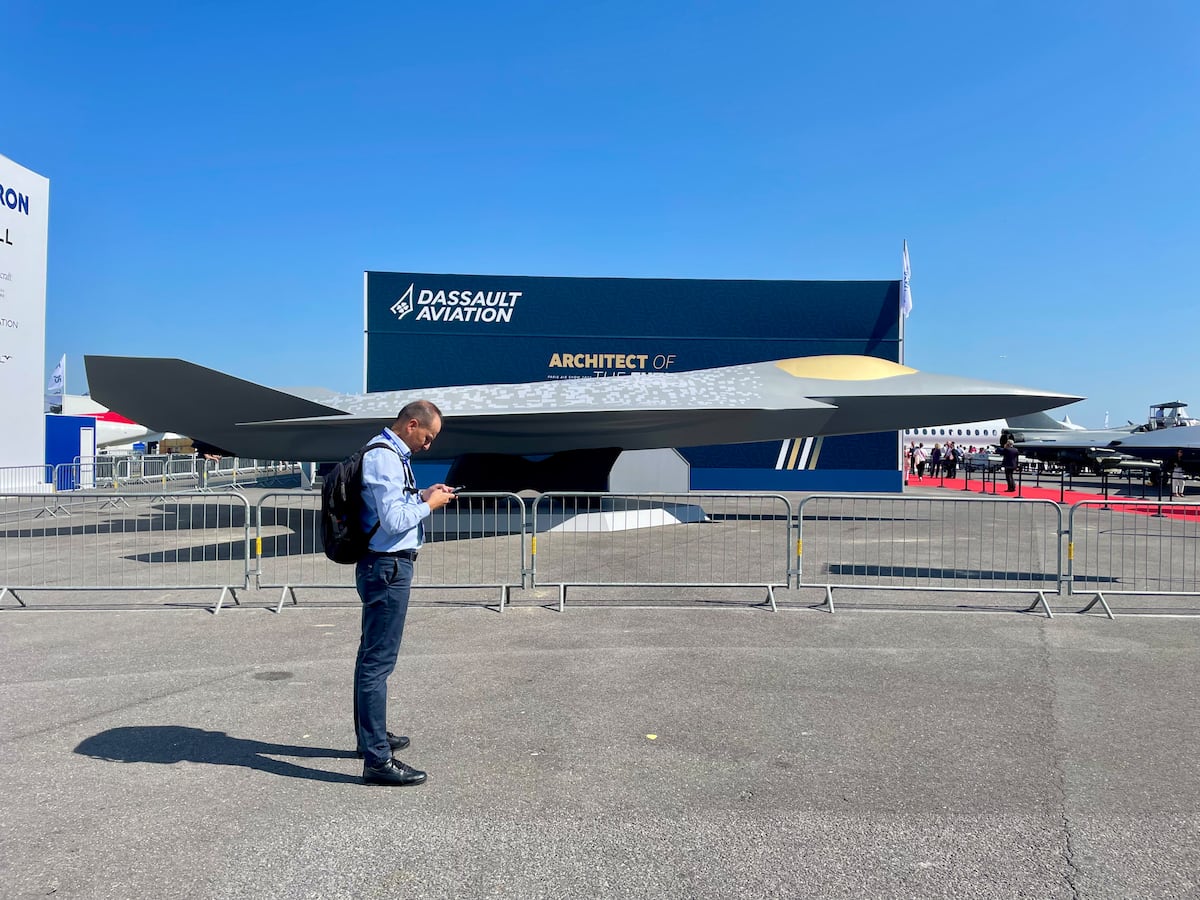



PARIS — France said it’s fully committed to reaching a “mutually acceptable solution” with Germany and Spain this year on the next phase of the Future Combat Air System, as prospects for the next-generation fighter project remain troubled amid infighting amongst the industrial partners.
France, Germany, Spain and the companies involved are “fully mobilized” to prepare phase 2 of the program, which includes building a demonstrator of the combat aircraft at the heart of the system, the French Armed Forces Ministry said in an emailed statement on Saturday.
France earlier this year asked Germany and Spain to redesign their FCAS cooperation to focus on “strengthening industrial leadership,” in order to meet a deadline for a future fighter to enter into service from 2040 onwards. Dassault Aviation, the French industrial partner for the fighter part of the program, has repeatedly said wrangling over work share with partner Airbus is causing delays.
“France and Germany remained determined to successfully carry out the FCAS program in cooperation with Spain,” the ministry said, adding it’s “fully committed, alongside its German and Spanish counterparts, to reaching a mutually acceptable solution by the end of the year.”
Dassault Aviation has reportedly been seeking a greater share on some parts of the program, with CEO Eric Trappier highlighting that the company, in combination with its French industrial partners Safran and Thales, has all the necessary skills to develop an aircraft on its own.
Spanish Prime Minister Pedro Sánchez said the original work-share plans must be respected, at a press conference with German Chancellor Friedrich Merz on Thursday, according to media reports. Meanwhile, Merz said talks among the three partiers are ongoing, saying “we cannot continue as things are at present.”
The current difficulties on FCAS echo those around a joint European fighter program in the 1980s, where France opted to go it alone after disagreements on design authority and operational requirements. That split resulted in Dassault Aviation developing the Rafale, while partners Germany, the United Kingdom, Italy and Spain developed the Eurofighter Typhoon.
Following completion of the first stage with the signing of contracts to develop key technologies, the FCAS team is “mobilized for a decision at the end of 2025,” the French armed forces ministry said.
Germany’s defense ministry discussed FCAS with Airbus earlier this month, and told the company it was exploring potential closer cooperation with Sweden or the U.K., or going it alone with Spain, Politico reported on Thursday, citing two unidentified people familiar with the discussions.
The U.K. is cooperating with Italy and Japan on the Global Combat Air Programme to develop a next-generation fighter, while Sweden is looking into its own future air-combat system.
The various approaches, including programs in the United States, typically follow a systems of systems approach: a crewed sixth-generation fighter at the core, teamed with unmanned wingman drones and remote carriers, using AI to reduce pilot workload and speed up decision making, all of it tied together through a combat cloud network.
Rudy Ruitenberg is a Europe correspondent for Defense News. He started his career at Bloomberg News and has experience reporting on technology, commodity markets and politics.
